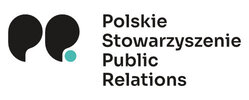
#COMMSTRANSFORMATION - what trends are changing PR world? PSPR comments and webinar replay
During Global Alliance Trends and Transformation Month we're discussing changes in the communication both on the webinar and inside the association. Watch the reply of the discussion between six presidents of European associations and read PSPR experts comments.
Katarzyna Szyposzyńska, PSPR Member - CORPORATE CULTURE IN A REMOTE ENVIROMENT
Corporate culture has become the subject of many studies, publications and scientific works. Thus, we have been dealing with many definitions that describe this phenomenon and simultaneously with many models called the model of corporate culture.
The common denominator for these "thousand" definitions of corporate culture is certainly the fact that corporate culture is nothing else than employees and the value system developed in a given organization.
Speaking of corporate culture in a remote environment, it is not impossible to mention about the coronavirus epidemic that has been raging for over a year and has changed the whole world around us. In the midst of the pandemic, which has to be stressed a man remained, and in the discussed example, it can be said that this is an employee with the entire value system, which in the organization we common call the corporate culture. COVID-19 has ruthlessly affected the organisation's operating system. Remote work, and thus the lack of direct contact between the company's employees, certainly have had unfortunately a negative impact on their self-assessment system, moreover, it led to the fact that in many cases it was necessary to reorganize the company's mission and vision and thus change the value system that so far was one of the most important binders of a given company. I do not want to say that the corporate culture in a remote environment does not exist or is something worse than that the one functioning in a "normal" world. I want to only point out, ending my thought, that in my opinion people are the core of each culture and of course their "souls". So, human beings who have a chance to interact with each other in direct interactions are a living organism which can’t be fed enough from a distance, i.e. in the remote environment.
Magdalena Biedrzycka-Doliwa, Head of corporate communications at Deloitte
The three main trends in communication that gained much traction during the last COVID year and I expect them to develop even stronger this year are human centricity, on-line communication/ digitalization and emphasis on reputation and social responsibility.
Trend number one: human centricity
Corporate communication during pandemic became much human-centred – in both internal and external context.
- Within organizations employee communication became more prominent and much more appreciated, winning importance and visibility.
- It became also clear that corporate culture supporting the well-being and mental health of employees is of key importance, not only during change periods and crisis situations like a pandemic.
- Leadership communication, as well as internal communication, supported and will further support the introduction of employee well-being initiatives helping organizational leaders deploy a more empathetic and human style of communication and people management.
Trend number two: on-line communication/ digitalization
We have observed digitalization as the main trend for a couple of years now, but COVID together with pandemic has brought a sudden and instant transfer of almost all communication activities to on-line channels. And again, it applies to both internal and external communication.
When it comes to press and media in general, we could see the move of traffic to already existing on-line information platforms. Also, traditional print media had to invest in their on-line versions. Among all of this on-line noise, publishers are moving towards paid online content, supporting high-quality journalism.
Changes in the media industry impacted to a large extent also PR activities:
- Contact with the press representatives is fully online now, including on-line press conferences and briefings, on-line TV interviews and phone radio comments. No more live events or discussion panels, we meet virtually.
- Need for content and intensified content generation – on-line channels need content constantly to use their full capacity and meet the expectations of a modern audience that craves fresh news, updated even several times a day. This creates more space for corporate thought leadership and corporate information but, unfortunately, poses also the danger of low-quality information and fake news generation.
- Many organizations decided to invest in their own digital communication channels. More and more companies are present in social media to publish their own content, they also implement such tools as blogs, webinars and podcasts to directly reach their target audiences.
Trend number three: emphasis on reputation and social responsibility
The rise of social media dramatically increased the transparency of public life and corporate actions as well. It gave an opportunity for external stakeholders to see if and how companies followed their corporate values amid pandemic crisis. We could see if corporate leaders walked the talk and how firms’ employer branding and CSR strategies were translated into actions.
Many companies gave the example of great social solidarity with those affected by COVID-19 to the largest extent. This sensitivity to social problems is rewarded by customers declaring that they prefer the products and services of the companies socially responsible over those which focus on their profits only.
We could clearly see a shift in perceptions - commercial enterprises are no longer a separate part of a larger society. They are held accountable for their impact on the environment they operate in. Currently, companies pay more attention to their positive impact not only on employees and their business partners but also the natural environment and local communities. Pandemic elevated this trend adding more emphasis on health issues.
#COMMSTRANSFORMATION webinar - replay
Luiza Jurgiel-Żyła, Polish Public Relations Association President, PR Manager at Cresa Poland - CORPORATE VALUES AND PURPOSES as a fundament of communication
The era of disconnecting business from values and social issues is over. In the age of endless choice and comparable prices, consumers treat brands as partners who should fit into their world view and care as much about the world as they do.
I don't just mean Generation X or Z, because social awareness has no age. A mature business feels part of the ecosystem and it fits its values and purposes. Companies know that they have enormous power to influence changes in the world and they feel responsible for them.
Business constantly strives for self-improvement, e.g. by reducing plastic usage, stopping testing cosmetics on animals, improving employees' working conditions, or striving for diversity and inclusion.
Ethics are written into the DNA of the modern business. And that's great - I'm pleased to live in a the world that understands that. I also have the pleasure to work at Cresa, which foundation is fighting against the conflict of interest in the real estate market.
In Poland companies increasingly often do not run away from speaking out against the government's actions in their communication. It exposes them to consumer boycotts, but on the other hand, it increases trust for their values and purposes.
However, this comes with many pitfalls - if purposes and values are just a marketing tool, this falsehood especially in the era of internet quickly comes to light. Consumers feel betrayed and do not only stop buying but also voices his objection at loud.
On the other hand, some companies that don't understand the essence of purpose make some fancy campaigns instead of starting with profound changes inside the company - in its operations, management, or employees' treatment.
The last point I would like to make in this short speech is the fear of getting over-promised or even ridiculed when the core business disappears from the communication horizon and the majority of messages are about values or purpose. It creates distrust and makes the company suspected of being artificial and overstatement.
So, let's keep the balance without losing sight of business and purpose.





